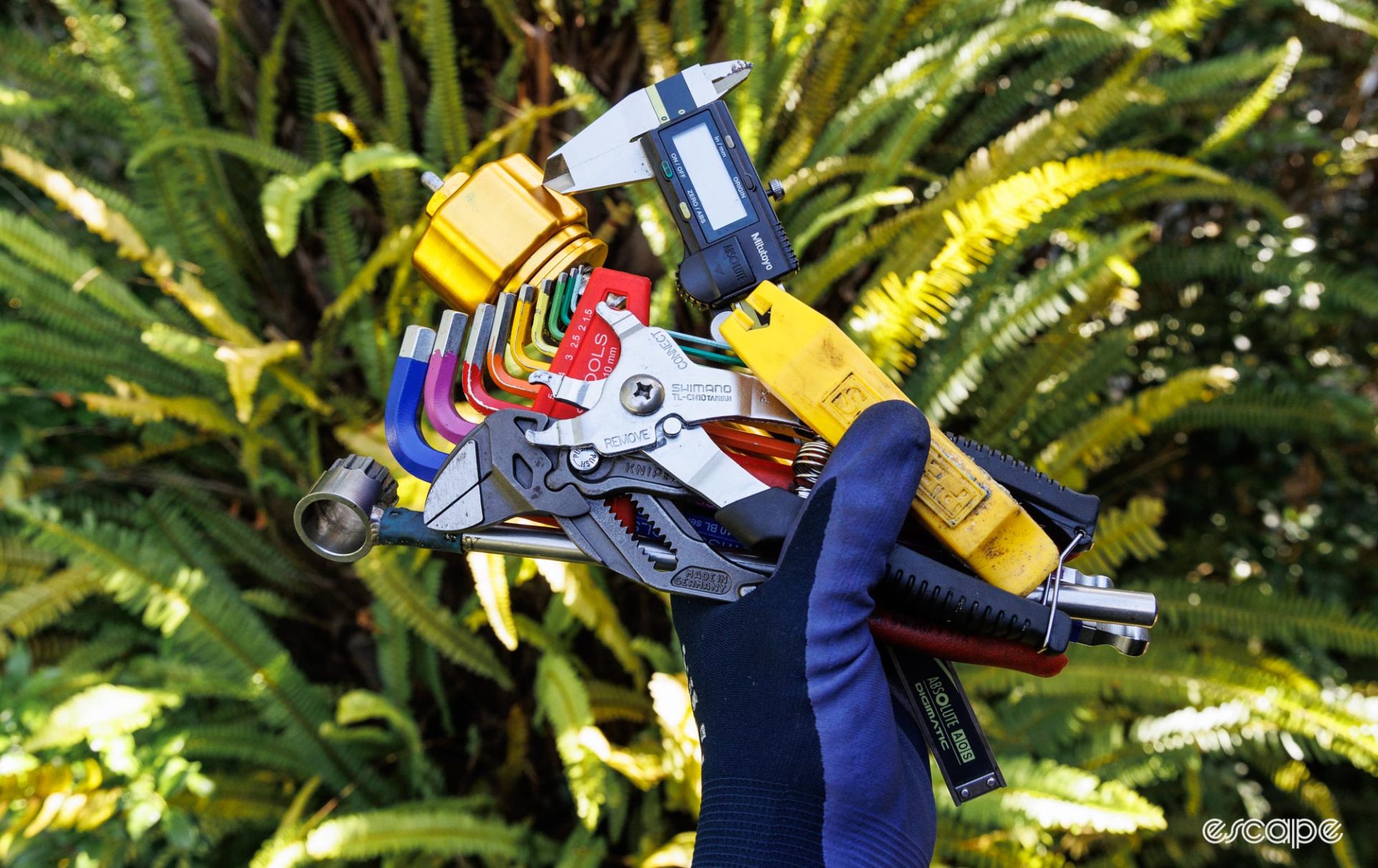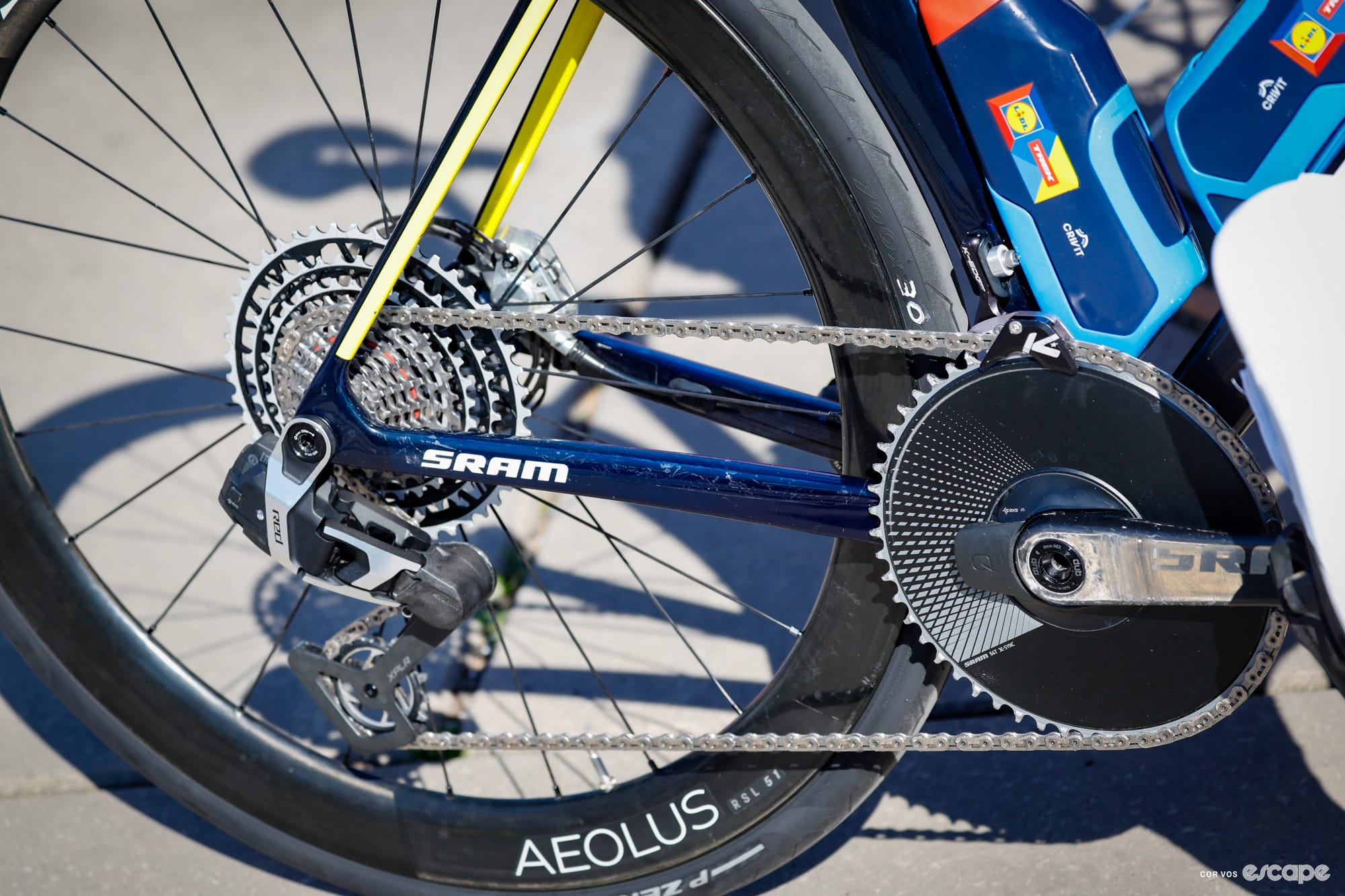Welcome back to Threaded, the regular newsletter for tool geeks, tinkerers, and impulse shoppers. With the year coming to a close, I thought I’d tick an idea off my list that’s sure to spark debate.
Yep, it’s a list covering some of my favourite tools. These tools have consistently stood the test of time (and imitators) and have never failed to impress. The newest item on this list is almost old enough to begin school, while the oldest could legally drink. Put another way, these are the tools I’d buy again in a heartbeat if they were ever to go missing, wear out, or break.
It’s been said before, but a great quality tool does more than its intended task – it can offer a higher level of user feedback, tactile control, trustworthy strength, make a task easier, faster, more precise, or merely last longer. And in my eyes, all the tools to make this list tick many, if not all, of these boxes.
You’ll notice that not every tool category is covered in this list. That’s partly to ensure you’re not still reading this by 2024, but ultimately I can’t decide on a “best” for many categories. Rather, consider this a list of gateway purchases to the respective brands, a gift wishlist, or merely a way to judge my irresponsible spending habits.
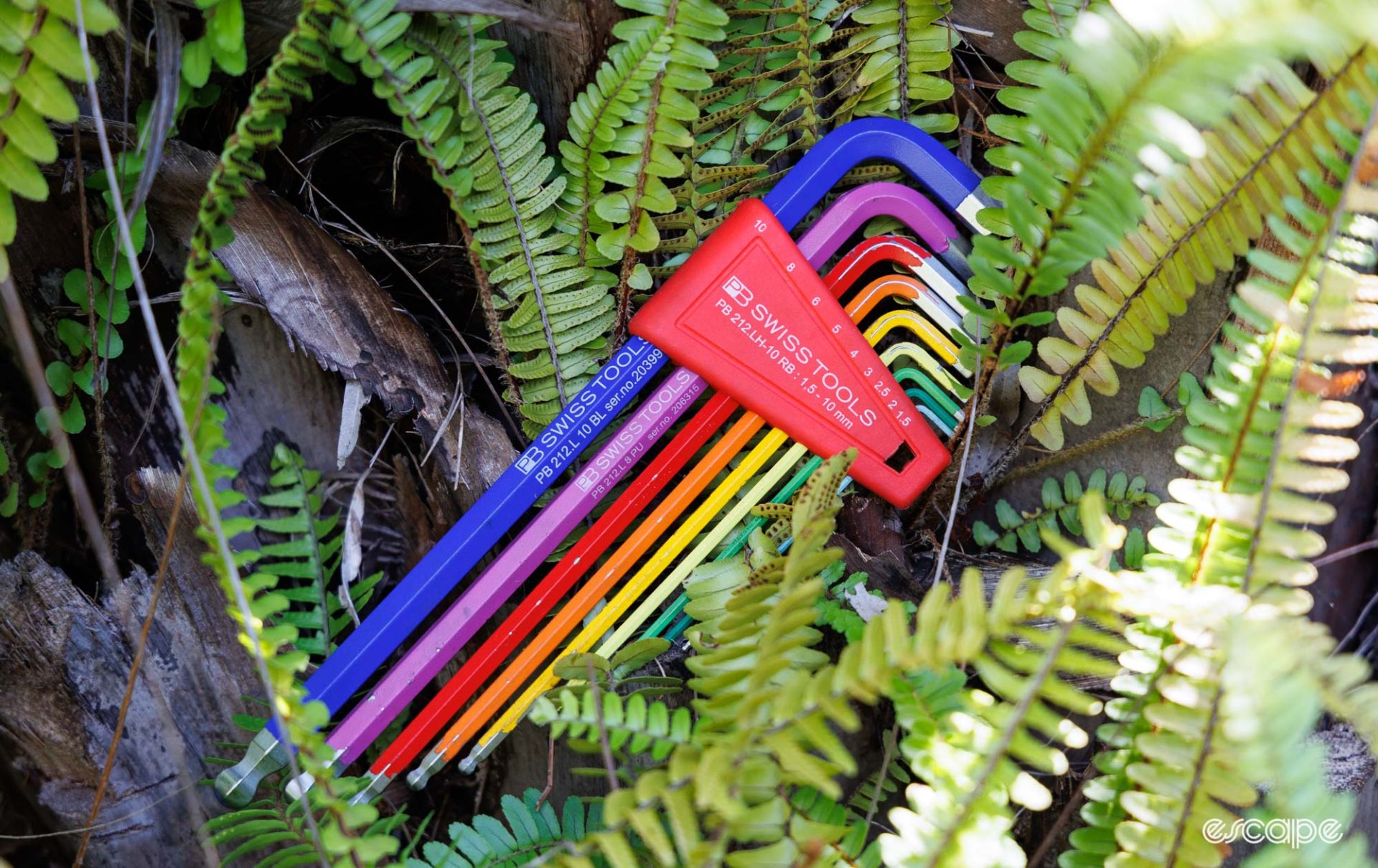
PB Swiss Rainbow
There are countless hex key options on the market, but PB Swiss holds a special place in my heart. The first thing you’ll notice is the Skittles-esque colours for easy size identification (a feature PB Swiss was the first to offer). Pretty colours aside, it’s the steel and consistent sizing that matters most to me.
Compared to other popular hex keys with bulbous centres, the consistent extruded shape of these fit everywhere, while that classic profile offers a controlled springiness and feel for what the bolt is doing. The hex end sizing isn’t super snug, but they then fit into every fastener, all while not rounding bolts – a tough balance to strike. The powder-coat colour coating now has me associating certain colours with certain sizes, but it also helps to provide a grippier texture for greasy fingers. And then I’ve yet to try anything else that comes close in absolute durability.
The first Threaded was me pleading not to have to pick one hex key, but if I did, it would be a set of PB Swiss 212.LH RB (Long Handle Rainbow). It was a proud dad tech editor moment to see these make the cut in the undisputed best products list from our members.
Expect to pay: US$72
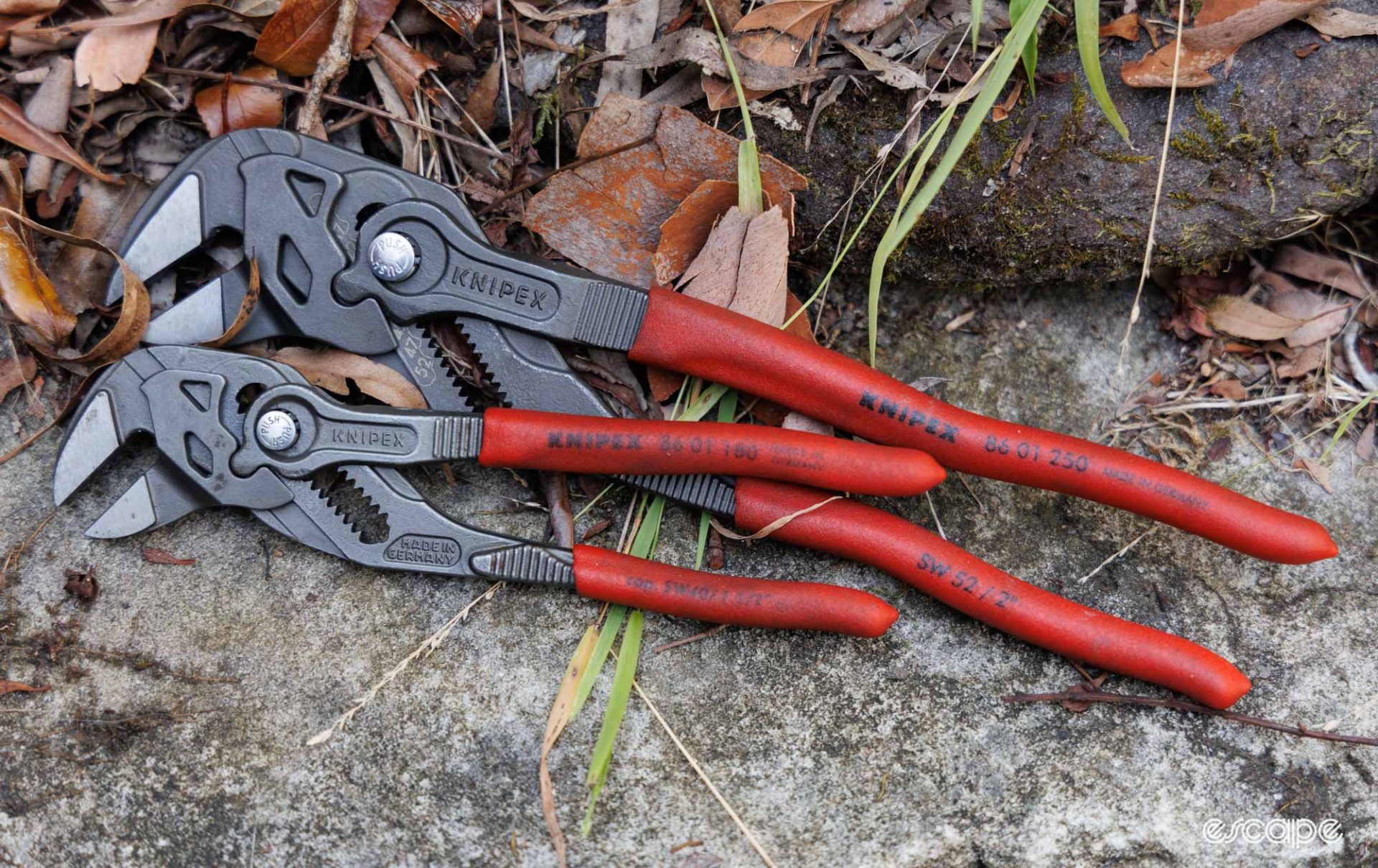
Knipex Pliers Wrench
Is it a wrench or pliers? Yes.
The Knipex Pliers Wrench began its life more than two decades ago as a game-changing tool for plumbers and has since found applications in multiple other industries. It’s somewhat like an adjustable wrench, but quicker to adjust, ratcheting (with the right technique), and with a vice-like grip from the smooth parallel-clamping jaws.
The Pliers Wrench is a great wrench replacement, but it’s an even better general multi-purpose tool. I use the 180 mm-length version for tensioning cables, pulling zip ties, straightening bent chainring teeth or derailleur cages, truing rotors, pulling out stuck hub end caps, turning crank pullers or tightening bearing pullers, and the list goes on. Meanwhile, the longer 250 mm version gets used for squeezing out rim dents (squished between two flat plates of steel) or even for the occasional pressing in of frame pivot bearings. And then one of my more prized possessions is a pair modified to work as a universal cone wrench spanner, which lives in my portable toolbox (you can still buy these for the ouchy price of US$150 from knipexmod(at)gmail.com).
Of course, I also use them as a wrench, and while they’re excellent for this task, I do advise caution as the clamping nature can deform some thinner and often-higher-end aluminium components.
They’re expensive for a pair of pliers, but it’s important to know they’re so much more than that. I’ve found the 180 mm version (#86 01 180) most useful for general bicycle things, so start there.
Expect to pay: US$70 (varies based on size)

Abbey Bike Tools Crombie
Ah yes, the original hollow cassette lockring tool with a permanent handle. The Crombie is what launched Abbey Bike Tools and it remains a staple in the company’s product range today.
My original Crombie tools are nearing their 10th birthday and show little sign of slowing. The simple design was initially intended to slide over the nut of quick-release skewers to save pro race mechanics (specifically WorldTour wrench Jeff Crombie) time in checking lockrings or swapping cassettes, however with time, the design has proven equally useful for modern disc brake bikes.
Just as with PB Swiss keys, there’s enough tactile feel in this tool to tell whether the lockring is moving or not. Plus, the thing is just impressively durable given what it weighs. I prefer the single-sided versions, partly because my brain doesn’t need to think about what size to use, but also because the handle sits closer to the engagement point so as to reduce the chance of camming out (occurs due to an unwanted angular force at the point of engagement. The downside is you miss out on the 12 mm thru-axle alignment pin of the dual-sided Shimano version.
Expect to pay: US$42.
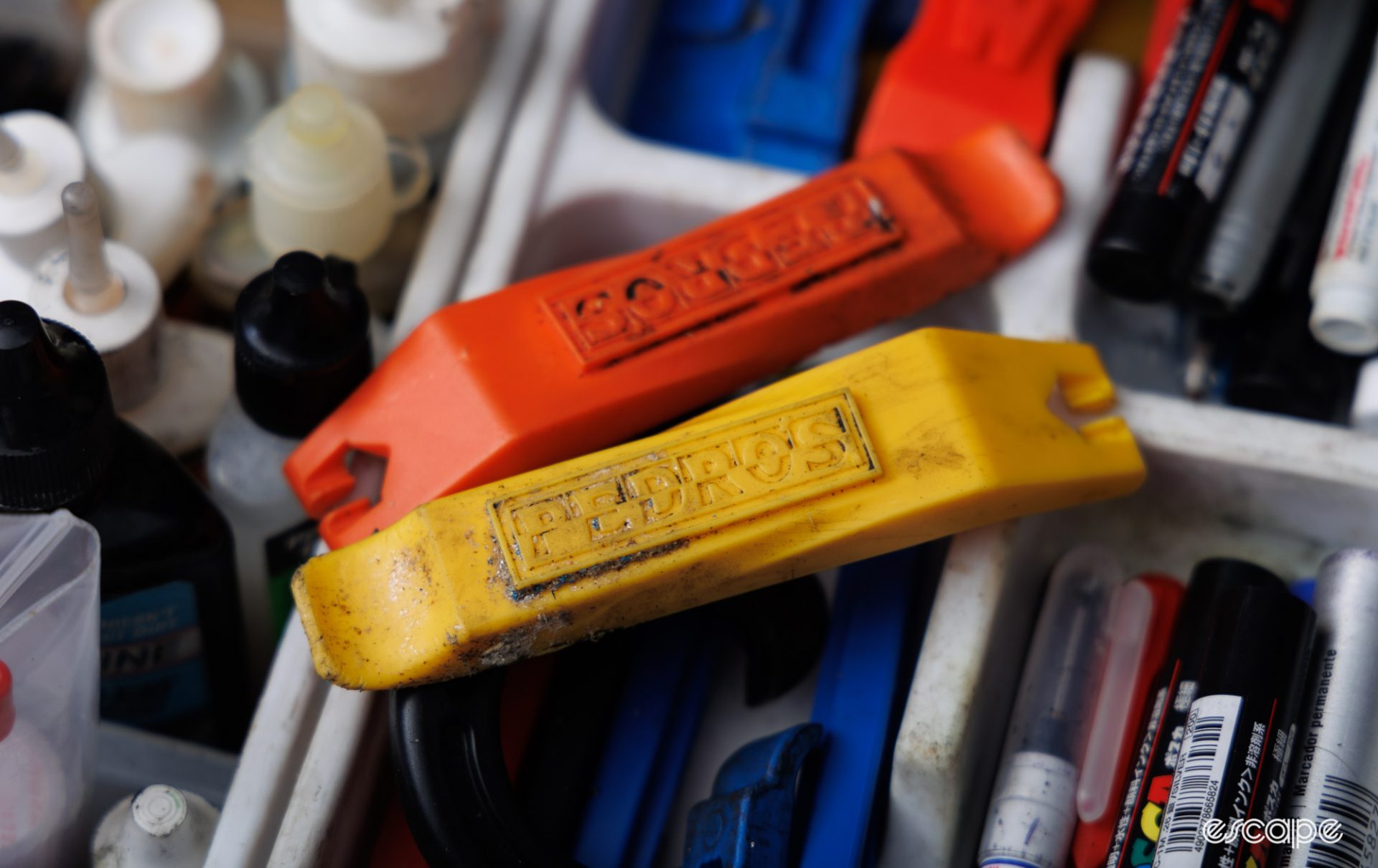
Pedro’s tyre lever
Time for the most controversial of all – the best tyre lever. I hear you, your CushCore/Schwalbe/KoolStop/Park Tool/Michelin/3D-printed/Grandma’s teaspoon/insert-other is the best tyre lever. I’m happy for you; it means more Pedro’s for me.
The Pedro’s tyre lever isn’t the only one I ever use, but it’s the first one I pick. The combination of stiff but resilient non-marring plastic, a great levering shape, a solid width, and a fair price all add up to a reassuring product that’s further backed by a lifetime warranty.
Better yet, it’s just about the perfect size for pressing in those delicate Shimano disc brake pistons (excluding the lower-end calipers that use the B-series pad).
Expect to pay: US$5.5 (for a pair).
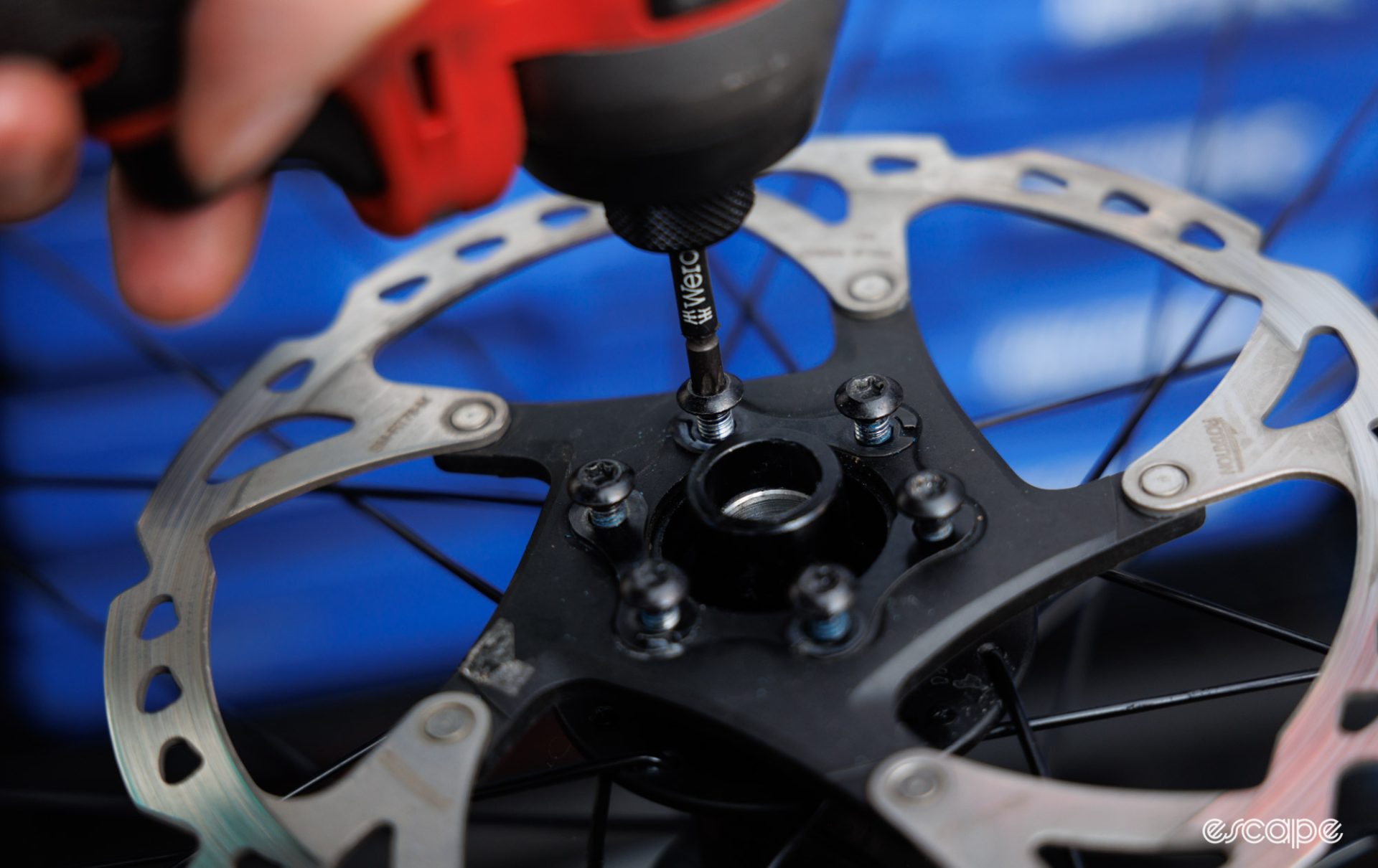
Wera Impaktor Torx bits
Those who read my Threaded on Torx will know I’m keen on electric impact drivers for undoing Torx rotor bolts. However, a key ingredient to having a positive experience is using high-quality tool bits – and that’s where Wera’s Impaktor Diamond Torx bits come in (T25 and T30 are most useful for bicycles).
These bits don’t just fit securely without being too oversized, they’ve also blown my mind regarding durability. I’ve yet to break one and you’ll zip free the six bolts from hundreds of wheels before seeing signs of wear (and do it before you correctly pronounce Cian Uijtdebroeks).
Meanwhile, the recent Shimano crank recall now has me expanding this suggestion to include a T30 size for the chainring bolts. Those bolts can be awfully tight to undo, and you simply won’t find a quicker, easier, or safer way of undoing them than with a good impact driver and a Wera Impaktor bit. Bonus points for being able to use these bits in a regular bit ratchet or similar, too.
Expect to pay: US$9 (per bit, sets available).
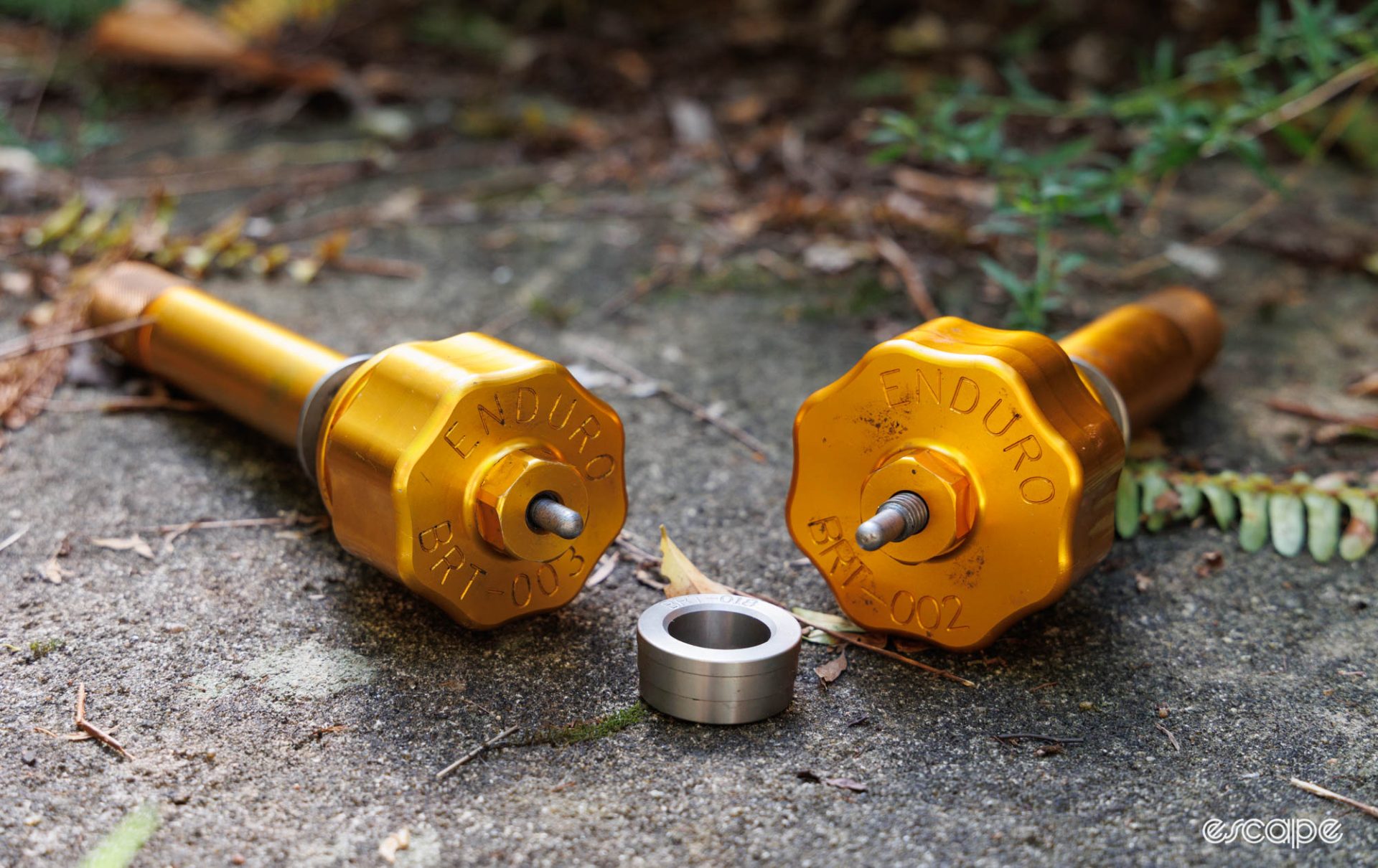
Enduro Press-Fit bottom bracket tools
I can understand why there’s so much hatred toward press-fit bottom brackets. If the botchy tolerances that plagued bikes for years weren’t enough, we also had to deal with many different sizes that often lacked easy methods for removal. Still, that hatred would be reduced if everyone was fortunate enough to use Enduro Bearings' press-fit tools.
These tools were the first hammer-free solution for press-fit bottom brackets and bearings, and now more than a decade later, they remain unmatched in the category. The secret weapon is a steel split collet that expands behind the bearing or bottom bracket cup to then provide a rock-solid fit for pressing (well, more pulling) the bearing (and/or cup) smoothly and evenly out. By keeping the removal perfectly square, not only does this tool prevent damage to the bottom bracket, but it’s also gentle on the bore of the frame, too. The tools then reverse to be used as a press for reinstalling fresh bearings or a new bottom bracket.
Unfortunately, Enduro Bearings has done a miserable job at marketing this tool over the years. Firstly, there’s little in the way of instructions that would encourage casual tinkerers to confidently buy one. However the biggest barrier is that Enduro hasn’t adapted the tool to new crank spindle diameters and bottom bracket systems, but rather, merely added more tools to buy. It currently takes four separate Enduro tools (BRT-002, BRT-003, BRT-018, and BRT-016) to create a kit that can handle everything from Trek BB92 to SRAM DUB PF30, and anything in between. This thing is the best at what it does, but buying all of those items is painfully expensive – please Enduro, merge these into one product!
Expect to pay: US$209 (for just one; closer to US$500 for all four items).
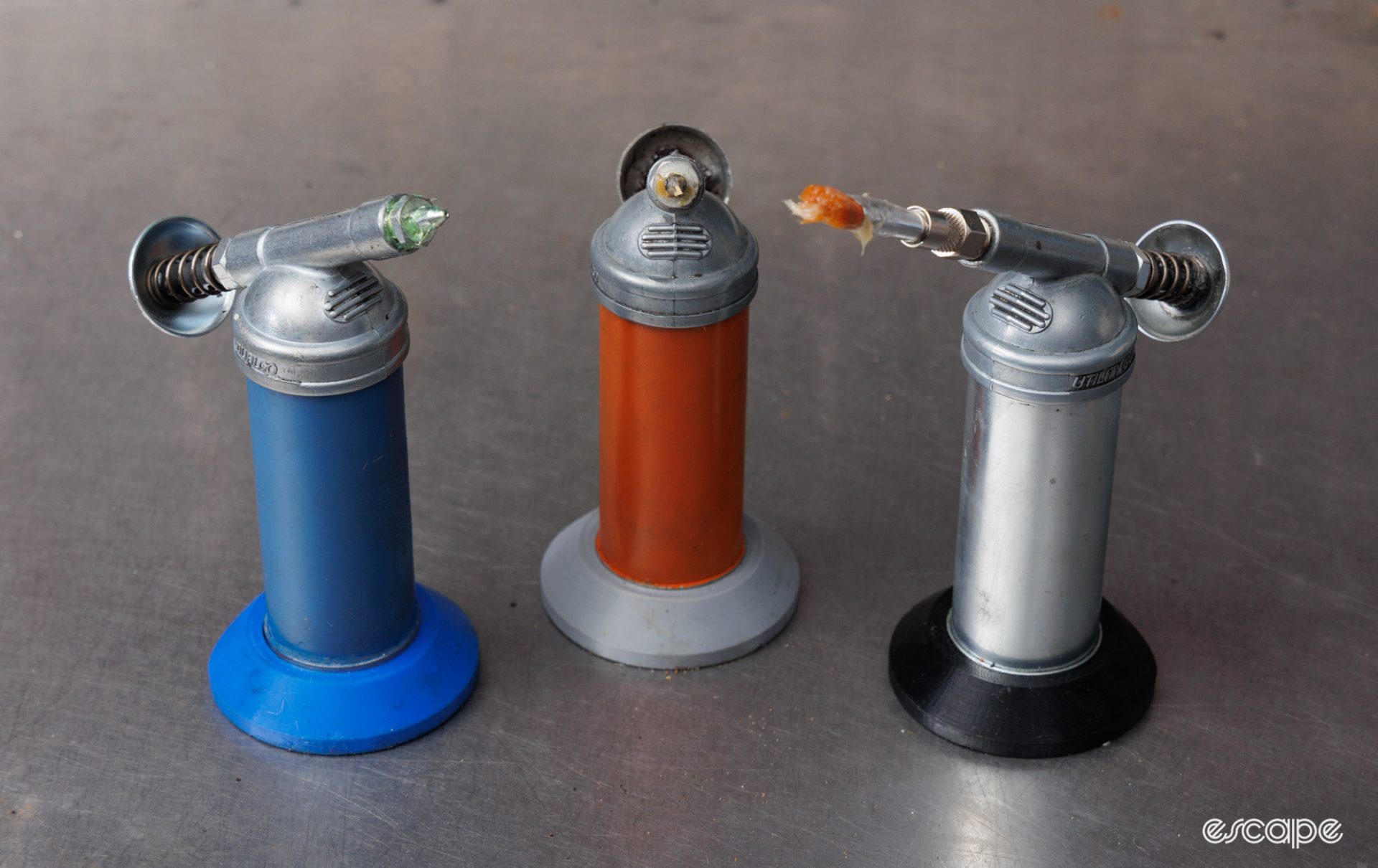
Dualco grease gun
The oldest item on the list is a small grease gun from American manufacturer Dualco. With a full metal construction and simple, manually-operated vacuum, this now widely copied design has earned icon status for durability and ease of use. These days I have three of them on my workbench, and it’s hard to pick the one that’s 20 years old against the young fella.
Sure, a cheaper option is syringes or even a squeezy tube of grease, but I keep returning to the Dualco (#700231) for its higher grease capacity and better ergonomics. Recently, they got even better thanks to Radar Laboratories’ upgrade kits that provide a 3D-printed base to reduce tipping while allowing the use of its syringe applicator tips (such as the pass-through brush head).
Just beware that a number of brands now have guns similar to this, but only those with visible Dualco branding are made by Dualco.
Expect to pay: US$22
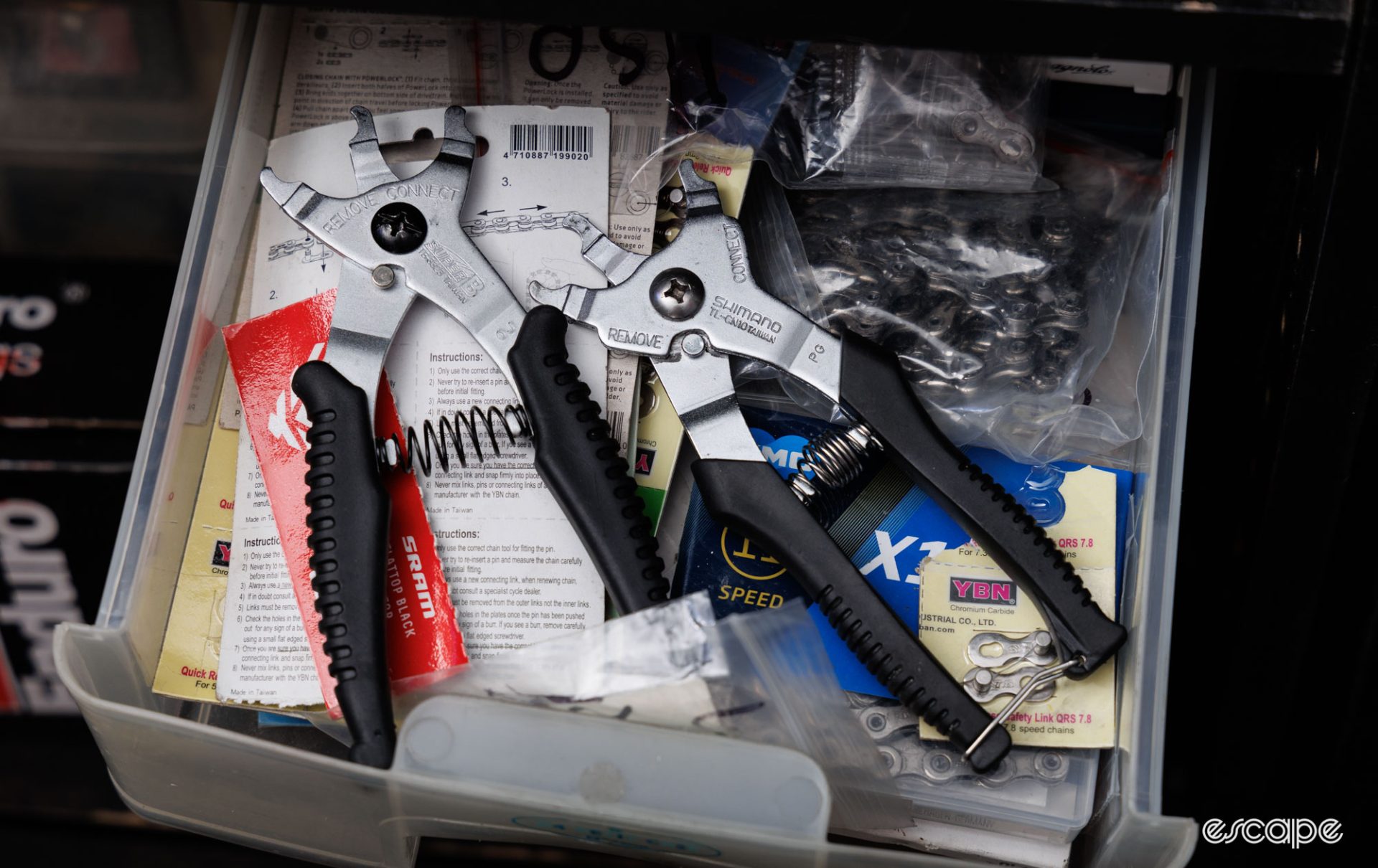
Shimano TL-CN10 Chain Quick Link pliers
Most quick link pliers on the market leave me feeling confused. Sure, most will open a quick link with ease. However, it’s a design failure to require two hands to close a link (by pulling out on the handles), and rather than use the pliers from Wolf Tooth, Park Tool, Pedro’s, Unior, Birzman, Topeak, or others, I’d much sooner hold the rear wheel and push down on a crank for such a task.
That’s where the Shimano Chain Quick Link Pliers come in. While not quite the same heirloom quality tool as many on this list, I’ve included them simply because the elegant two-way design embarrasses all other options.
These pliers add an extra hook so that you can either squeeze the quick link open or close it. That one-handed closing method allows me to use my other hand to squeeze the two plates of the quick link together, therefore insuring against any chance of a faulty connection. It’s a small detail, but one I’ve found to be quicker and more comforting.
For those seeking a bargain, check out the Super B pliers (I believe they’re the manufacturer of the tool for Shimano). The Shimano version adds a clasp to keep the handles closed in storage, has higher-quality grips, and seems to be finished to a higher standard, but both do the job.
Expect to pay: US$45 (Super B are far less)
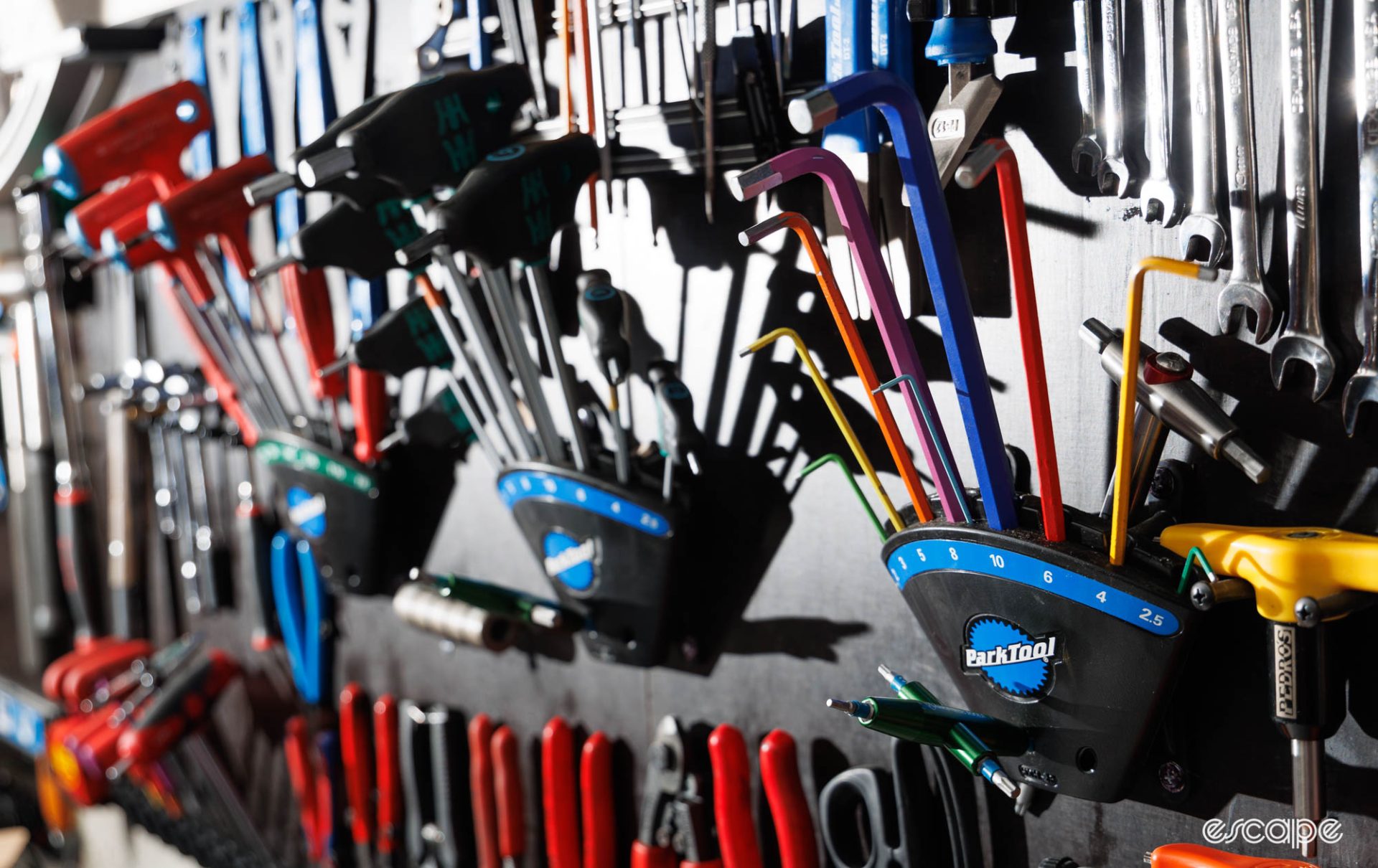
Park Tool HXH Hex/Torx key holders
Tool walls/boards are only efficient if your tools are stored for easy one-handed grabbing. For me, the contents of my tool board are centred around three Park Tool HXH hex key holders.
What makes these special is how they sit out at an angle from the wall, which along with the even spacing between sizes, naturally allows the hex keys to fan out and point the tool heads forward. The result is simply the best grabbing and returning of hex keys of any holder I’ve tried.
OK, so they’re brilliant but not perfect. The alternating sizing takes some getting used to. And then having set hole sizes means you can’t fit hex or Torx keys with oversized shafts or additional sleeves – a fact that rules out Wera’s coloured L keys, most sliding T-handles, Pedro’s Master hex keys, and similar. And finally, it’s BYO drill bit to create a hole for that easily-lost 1.5 mm hex key.
Another more-versatile but space-hungry option playing on a similar theme is the 3D-printed tool holders from Radar Laboratories.
Expect to pay: US$24
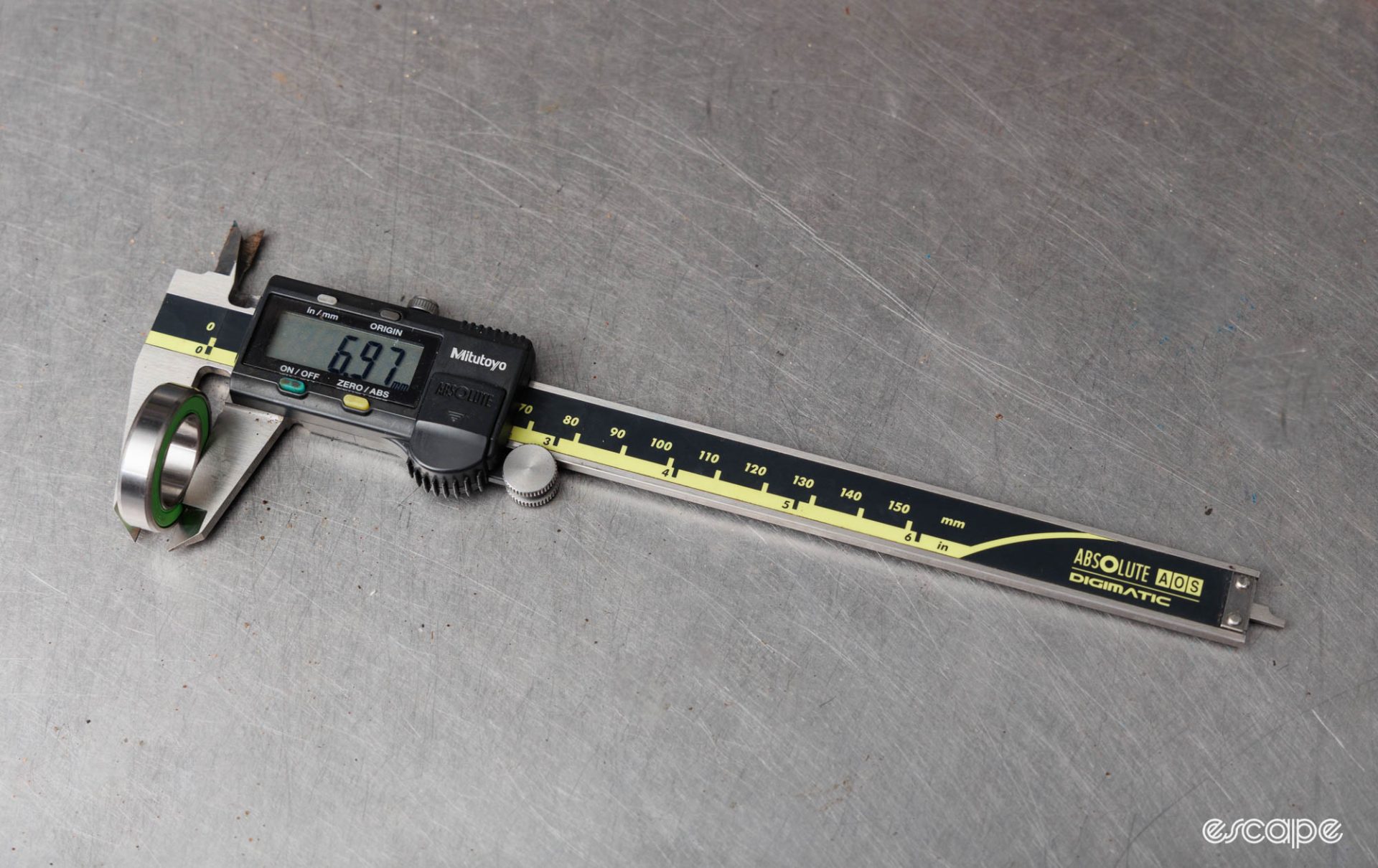
Mitutoyo Digital calipers
Being able to confidently say whether a seatpost is 31.8 or 31.9 mm, or a headset bearing is 51.9 or 52 mm is crucially important in the world of bicycle mechanics. I spent years double-guessing such measurements, and when my third cheap generic digital caliper failed, I decided I was overdue to invest in a pair that machinists trust. That’s what led me to the Mitutoyo Absolute Digital #500-196-30 (one of the better value options from this company).
Not only are these ultra-consistent in measurement, they also feel smoother and more robust than the cheap stuff. Better yet, they don’t chew batteries like those cheaper ones do – I’m talking years between battery changes, not weeks.
Sure, a nice dial-based or even vernier calipers will do the trick, and often at a cheaper price, too. Personally, I find digital just that much quicker and easier to read in a range of lighting conditions.
Just be warned, these are widely counterfeited products where even shoppers on Amazon have been bitten. Buy from a reputable stockist who offers many items from Mitutoyo’s expansive catalogue, and if the price seems too good to be true …
Expect to pay: US$165
New Tools Day
Time for a quick bit of class show-and-tell. UK-based frame builder Ryden Bike previously created a bike fit measuring and replication tool based on 3D-printed parts (also available for free download) that slid over a long rigid plastic ruler. A key feature is how it holds and uses a smartphone to measure angles, and from there, Ryden’s in-browser app calculates things like saddle set-back.
Now Ryden has a Pro version based on a stiffer aluminium ruler with more refined printed components and thumb screws to lock each piece into place. The tool uses a modular design with interchangeable crank adapters to easily locate the exact centre of any bottom bracket. From there, an adjustable saddle-centre finder gives a consistent measurement for saddle height, set-back, and more. Better yet, the whole thing splits in half for easy storage.

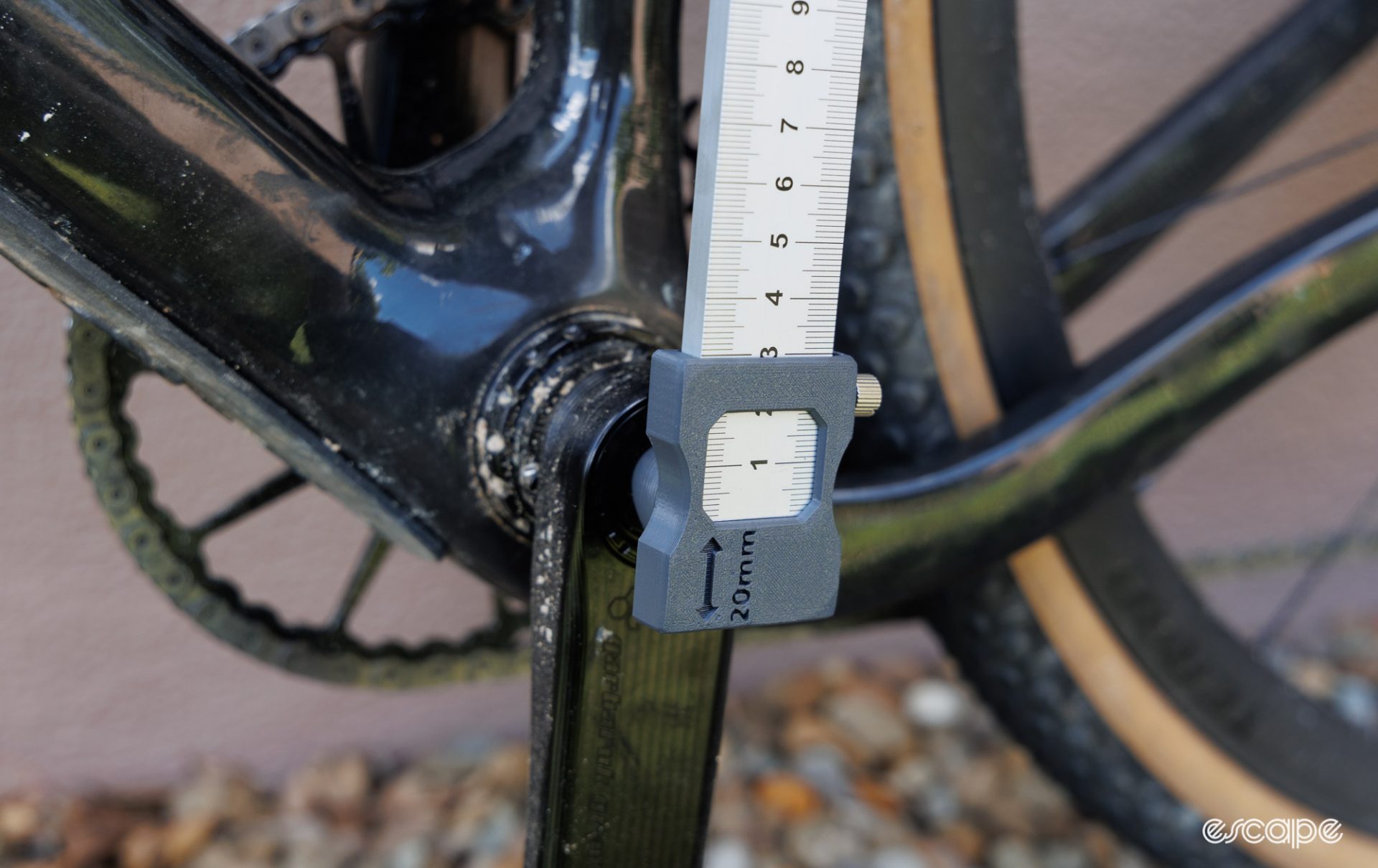
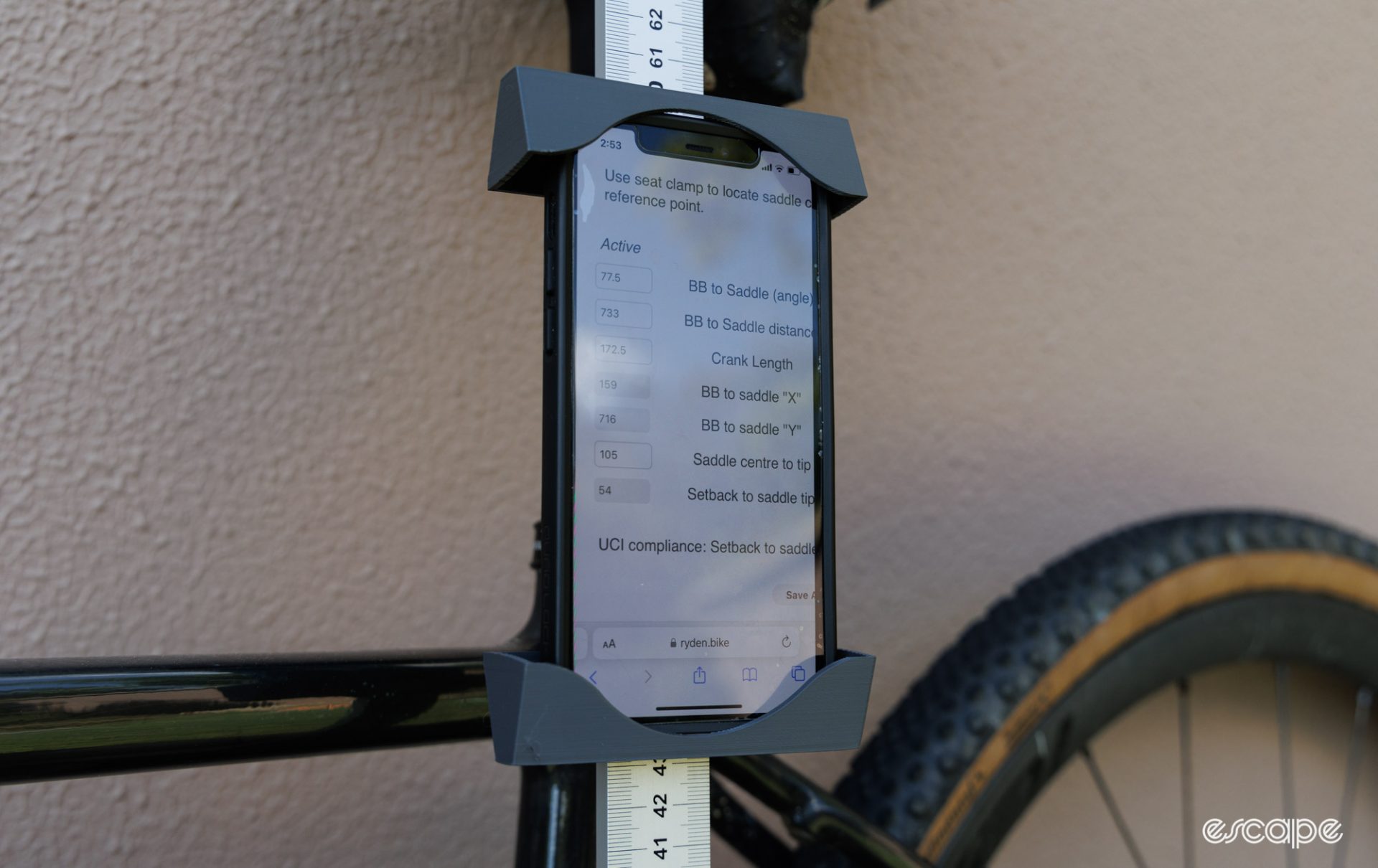
It’s still early days using this tool and I’m unsure if it’ll replace my simpler Abbey Fit Kit, but so far, it’s proving an elegant solution for that millimetre-exact fit – assuming the bike you’re measuring is on a perfectly level floor. The Pro version is priced at £155, while the original version is available for just £63.
Shameless plugs of the week
Everything I create for Escape Collective, including Threaded, exists solely through the support of our members – we need your support to make this last. In the spirit of the holidays, we’re running a special where you can buy yourself (or a friend) a regular-price annual membership and get an Escape t-shirt for free (you decide who gets the tee).
And speaking of tees, we just launched a Threaded version for anyone who dislikes using 3-way hex keys as much as I do. Controversial, I know!
Finally, and if you haven’t already, you can ensure you won't miss future editions of Threaded by signing up for the free newsletter version. And if you have signed up, then please consider forwarding this to someone else who may enjoy it.
Threaded will return in the new year – there's plenty more to come!
Did we do a good job with this story?

